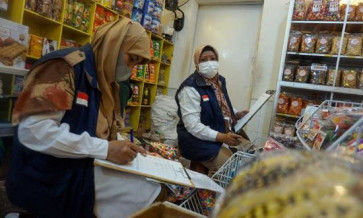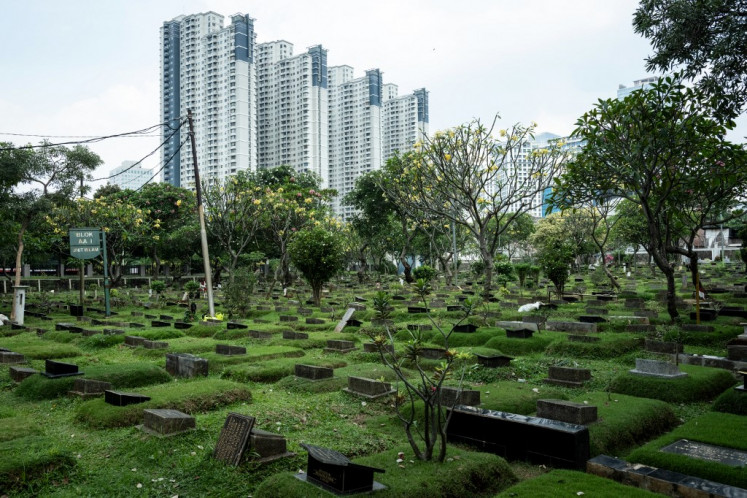Popular Reads
Top Results
Can't find what you're looking for?
View all search resultsPopular Reads
Top Results
Can't find what you're looking for?
View all search resultsEducating the neglected young voters
Around 21 million young Indonesians will vote for the first time in the 2014 general election, but the political education of these young voters has been neglected by the state
Change text size
Gift Premium Articles
to Anyone
Around 21 million young Indonesians will vote for the first time in the 2014 general election, but the political education of these young voters has been neglected by the state.
While senior government figures and political parties repeat the old cliches regarding the importance of young voters, volunteer groups have established collaboration between young people and the private sector and have carried out the all important duty of political education.
One such group is the Center for Election and Political Party (CEPP) that holds a license from the US-based Rock The Vote organization, which builds the political awareness of young people.
CEPP director Chusnul Mariyah said the group had been educating young voters across the archipelago without any assistance from the government or the General Elections Commission (KPU).
'CEPP has offered many forms of collaboration and cooperation with the KPU but it never appreciates our ideas and proposals,' Chusnul said in a recent interview.
CEPP educates young voters through discussions among university students and senior high school students. It has also set up branch offices in more than 40 campuses.
'Our goal is not only preparing young voters to vote during the 2014 general election but to also develop future leaders to lead Indonesia on its 100th anniversary in 2045. Who are these future leaders? They are students between the ages of 17 and 23. This is why CEPP works on campuses,' Chusnul said.
While CEPP focuses on educating young voters through political discussions and networking among campuses, the Jari Ungu movement tries to educate young voters by encouraging them find out about the track records and backgrounds of legislative and presidential candidates.
'We provide a track record database of legislative and presidential candidates. We compile the database based on various input, such as reputable media reports,' Jari Ungu counsellor Ery Riyana Hardjapamekas told The Jakarta Post.
'We allow candidates to provide their own clarification on their track records. It's accessible to the public, including young voters, through our website. Our spirit is to educate young voters to really know the candidates before they cast their votes.'
He added that the promotion of the Jari Ungu movement was conducted via online media as offline promotion from campus to campus was too expensive.
'We do link exchanges with several news portals and work with several national media outlets to promote our website and its database,' said Erry, a former deputy chairman of the Corruption Eradication Commission (KPK).
During the 2014 general election, 6,607 legislative candidates will compete to fill 560 House of Representatives seats, 497 candidates will compete to fill 77 Regional Representatives Council (DPD) seats and around 200,000 candidates will compete for seats in legislative councils at regional and municipal levels.
Erry said Jari Ungu had compiled the track records of hundreds of thousands of legislative candidates in its database but the work was not yet complete.
'We need to compile a little bit more and hopefully we can finish before the elections start,' he said.
A movement called Ayo Vote also focuses on compiling a database of legislative candidates in an effort to educate voters.
While the Jari Ungu database only focuses on track records, the Ayo Vote database will also include information on the candidates, including their views on some issues such as housing problems, according to Disna Harvens, a member of Ayo Vote.
Ayo Vote has also faced difficulties in establishing cooperation with the KPU to educate young voters.
Ayo Vote initiator Pingkan Irwin said she had not been able to foster a potential partnership with the KPU, attributing the failure to the bureaucracy as well as the approaching vote, which is due in less than two months.
KPU commissioner Ferry Kurnia Rizkiyansyah, however, said the failure to strike a partnership was probably caused by technical difficulties.
'We've already worked together [with CEPP] through the program of Goes to Campus. We have the intention [to work together], but probably [have not yet done so] because of technical problems,' he said.
' Hans Nicholas Jong contributed to this article










